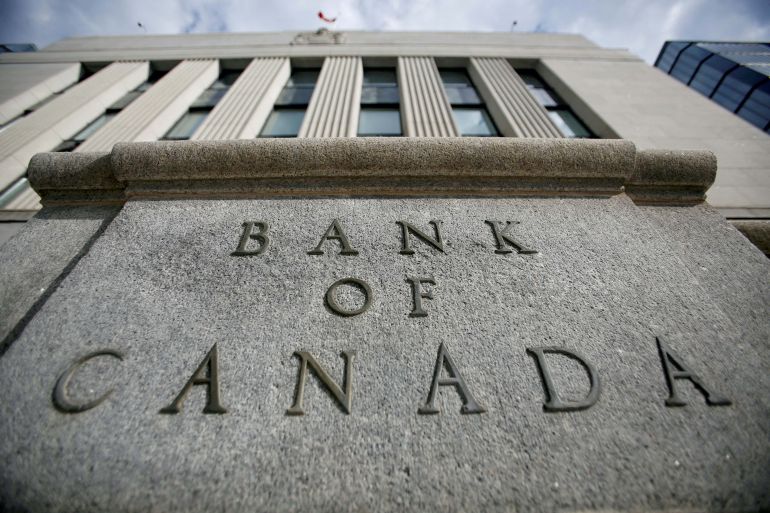Bank of Canada raises rates by full point to curb inflation
Canada’s central bank raised its policy rate to 2.5 percent from 1.5 percent and said more hikes would be needed.

The Bank of Canada on Wednesday surprised markets with a full-percentage-point rate increase, a super-sized increase last seen in 1998, citing “higher and more persistent” inflation and the increased risk of those price gains becoming entrenched.
The central bank, in a regular rate decision, raised its policy rate to 2.5 percent from 1.5 percent, and said more rises would be needed. The move was more forceful than the 75-basis point increase economists and money markets had forecast. “With the economy clearly in excess demand, inflation high and broadening, and more businesses and consumers expecting high inflation to persist for longer, the Governing Council decided to front-load the path to higher interest rates,” the bank said.
Keep reading
list of 4 itemsUS inflation jumps 9.1 percent in June to fresh four-decade high
Canada announces ban on single-use plastics in ‘historic step’
Canada police arrest former priest for residential school assault
“Interest rates will need to rise further,” it added.
The Bank of Canada also dramatically raised its near-term inflation forecasts and made clear it expects price gains to go higher, averaging approximately 8 percent in the middle quarters of 2022. Canada’s inflation rate hit 7.7 percent in May, near a 40-year high.
“The Bank of Canada’s rate hike of 100 basis points clearly means that they were very far behind the curve and so they’re trying to catch up in a hurry and not get into a situation where we have a whole series of inflation-positive surprises,” said James Telfser, managing partner at Aventine Investment Counsel.
“The knee-jerk reaction is not too different from how the markets had been trading on the back of the US inflation print, but you’re going see more pressure on financials and technology in Canada,” he added.
Canada’s central bank now sees inflation averaging 7.2 percent this year, falling to about 3 percent by the end of 2023 and then back to the 2 percent target by the end of 2024.
It noted a “sharp slowdown” in Canada’s housing market was under way, with that contraction expected to continue this year and into 2023.
Canada’s economic growth is now expected to be lower this year, with gross domestic product rising 3.5 percent, then slowing further to 1.8 percent in 2023.
The slower growth is “largely due to the impact of high inflation and tighter financial conditions on consumption and household spending,” the bank said. Its baseline forecast is for a soft landing, with no recession over the next three years.
Governor Tiff Macklem, who just recovered from COVID-19, participated in the rate decision remotely, the central bank said.
The Canadian dollar strengthened after the decision to 1.2956 to the greenback, or 77.18 US cents, up 0.5 percent on the day.